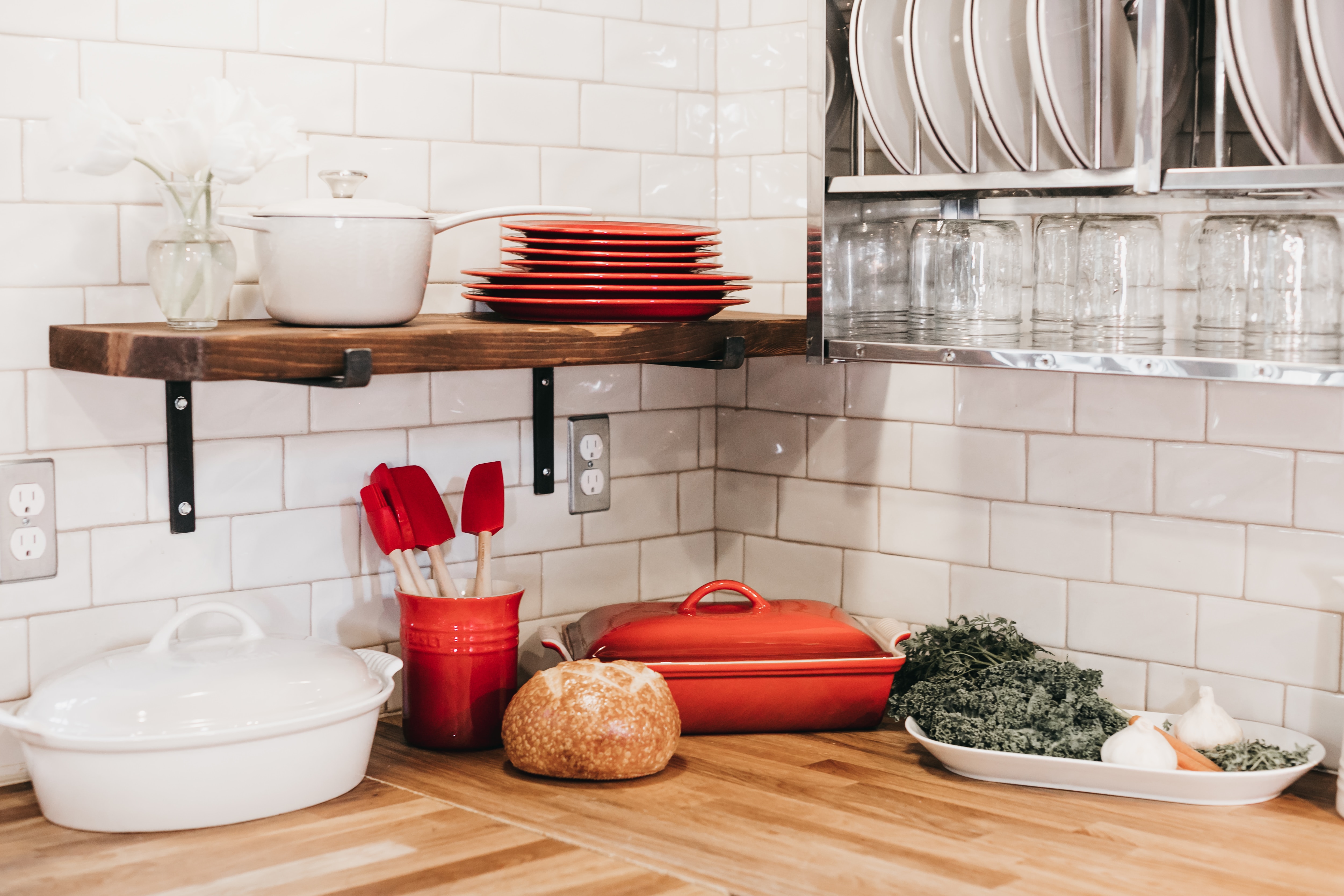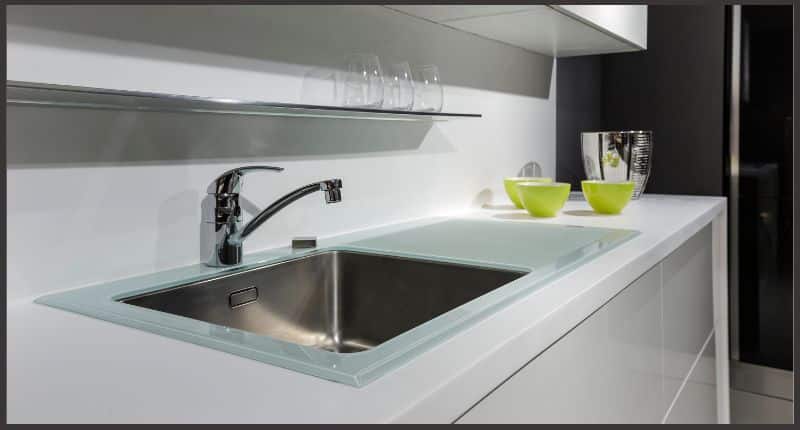Welcome to our guide on how to naturally clean your kitchen sink drain! Maintaining a clean and efficient kitchen sink drain is essential for a healthy home environment. Over time, debris, food particles, and soap scum can build up, leading to unpleasant odors and clogged drains. But worry not, as we have handpicked some effective and eco-friendly methods to help you tackle this everyday challenge. In this article, we will explore the power of natural ingredients like baking soda, vinegar, and lemon juice, while providing step-by-step instructions on how to use them to achieve a sparkling clean kitchen sink drain. Let’s ensure a fresh and clog-free experience every time you use your sink!
Table of Contents
How to Clean Kitchen Sink Drain Naturally
Keeping your kitchen sink drain clean and odor-free is essential for maintaining a healthy and hygienic home. A clogged or smelly drain can be frustrating to deal with, but fear not! In this article, we will explore natural methods to effectively clean your kitchen sink drain and keep it running smoothly. No need to reach for harsh chemicals – we’ve got you covered with eco-friendly solutions.
The Importance of a Clean Kitchen Sink Drain
Before we dive into the methods for cleaning your kitchen sink drain naturally, let’s talk about why it’s important to keep it clean in the first place. Your sink drain accumulates all sorts of debris over time, from leftover food particles and grease to soap scum and mineral deposits. Not only can this lead to unpleasant odor, but it can also create a breeding ground for harmful bacteria and pests.
Regularly cleaning your kitchen sink drain helps prevent clogs and keeps the water flowing freely. It also eliminates any foul smells that might waft up into your kitchen. So, let’s get started on some natural and effective cleaning methods!
Vinegar and Baking Soda Solution
One of the most popular and effective natural ways to clean your kitchen sink drain is by using a combination of vinegar and baking soda. This dynamic duo creates a powerful fizzing reaction that helps break down grease and remove stubborn residue.
To use this method, follow these steps:
- Remove any debris, such as food scraps, from the drain manually.
- Pour half a cup of baking soda down the drain.
- Follow it up with a cup of white vinegar.
- Cover the drain to trap the fizzing reaction and let it sit for about 15 minutes.
- Flush the drain with hot water to clear away the residue and any remaining gunk.
Repeat this process once a month to keep your kitchen sink drain clean and free from clogs. This natural method not only eliminates odor but also helps maintain the longevity of your pipes.
Lemon and Salt Scrub
For a refreshing and citrusy clean, harness the power of lemons and salt. Lemons are a natural deodorizer and contain citric acid, which helps break down grease and grime. Salt, on the other hand, acts as a gentle abrasive agent, aiding in the scrubbing process.
To create a lemon and salt scrub for your kitchen sink drain, follow these steps:
- Cut a lemon in half.
- Spread a generous amount of salt on one of the lemon halves.
- Scrub the lemon half with salt along the walls of the drain.
- Rinse the drain with hot water to wash away the lemon and salt residue.
This simple yet effective method not only leaves your drain smelling fresh, but it also helps dislodge any build-up that may be lurking within your pipes.
Boiling Water Method
If you’re looking for a quick and effortless way to maintain a clean kitchen sink drain, a pot of boiling water might be the magic solution. Boiling water helps melt away any grease and flushes out loose debris, effectively clearing the drain.
Here’s how you can use the boiling water method:
- Boil a pot of water.
- Carefully pour the boiling water down the drain in three separate stages, waiting a few seconds between each pour.
- Run hot water down the drain to ensure any remaining residue is cleared away.
For optimal results, repeat this process every week. However, exercise caution when handling boiling water to avoid any accidents or burns.
Tips for Preventing Future Drain Build-Up
Now that your kitchen sink drain is squeaky clean, it’s important to take preventive measures to maintain its pristine condition. Here are a few tips to keep in mind:
Avoid Pouring Grease Down the Drain
Grease is one of the main culprits behind clogged drains. Instead of pouring it down the drain, let it solidify in a container and dispose of it in the trash.
Use Sink Strainers
Invest in sink strainers to catch food debris and prevent it from entering the drain in the first place. Regularly clean the strainers to ensure free water flow.
Run Hot Water After Each Use
After each use, run hot water down the drain to help flush away any grease or residue that may have accumulated.
Regularly Clean Your Sink
By cleaning your sink regularly, you minimize the chances of dirt, grime, and bacteria making their way into your drain. A clean sink is a happy sink!
The Bottom Line
Keeping your kitchen sink drain clean and odor-free doesn’t have to involve harsh chemicals. By utilizing these natural cleaning methods, you can maintain a healthy and hygienic kitchen environment. Whether it’s using vinegar and baking soda, creating a lemon and salt scrub, or simply pouring boiling water down the drain, these eco-friendly solutions will help keep your kitchen sink drain running smoothly. Remember to take preventive measures to avoid future build-up, and enjoy a fresh and clean kitchen sink drain for years to come!

Photo by Jason Briscoe on Unsplash
Additional Guide
How to make a small kitchen look bigger provides helpful tips and tricks to maximize the space in your kitchen. From utilizing storage solutions to utilizing natural light, this article offers valuable insights for anyone looking to optimize their kitchen layout.
In How do I start a small kitchen, you’ll find practical advice on how to begin the process of designing and organizing a small kitchen. From decluttering to selecting efficient appliances, this article offers a step-by-step guide for creating a functional and visually appealing space.
If you’re looking to upgrade your coffee-making experience, check out white coffee makers: top 10 picks for a chic brew. This article features a selection of stylish and high-quality coffee makers that can elevate your kitchen and enhance your morning routine.
FAQs: How to clean kitchen sink drain naturally
1. Why should I clean my kitchen sink drain naturally?
Cleaning your kitchen sink drain naturally has several benefits. Using natural methods helps avoid harsh chemicals that can be harmful to your health and the environment. Natural cleaners are also effective at removing grease, food particles, and odors from your drain, leaving it clean and fresh.
2. How often should I clean my kitchen sink drain?
It is recommended to clean your kitchen sink drain once a month to prevent buildup and clogs. However, if you notice any foul odors or slow drainage, it is advisable to clean it more frequently. Regular cleaning helps maintain a healthy and functional drain.
3. What are some natural ingredients I can use to clean my kitchen sink drain?
There are several natural ingredients that you can use to clean your kitchen sink drain effectively. Some commonly used options include baking soda, vinegar, lemon juice, salt, and hot water. These ingredients help break down grease, eliminate odors, and remove buildup from your drain.
4. How do I clean my kitchen sink drain naturally?
To clean your kitchen sink drain naturally, you can follow these steps:
1. Begin by pouring boiling hot water down the drain to soften any grease and debris.
2. Pour half a cup of baking soda into the drain and let it sit for a few minutes.
3. Mix half a cup of vinegar with half a cup of hot water and pour it down the drain.
4. Plug the drain opening and let the mixture sit for about 15 minutes to allow it to work on breaking down buildup.
5. Finally, flush the drain with boiling water to rinse away any remaining residue.


